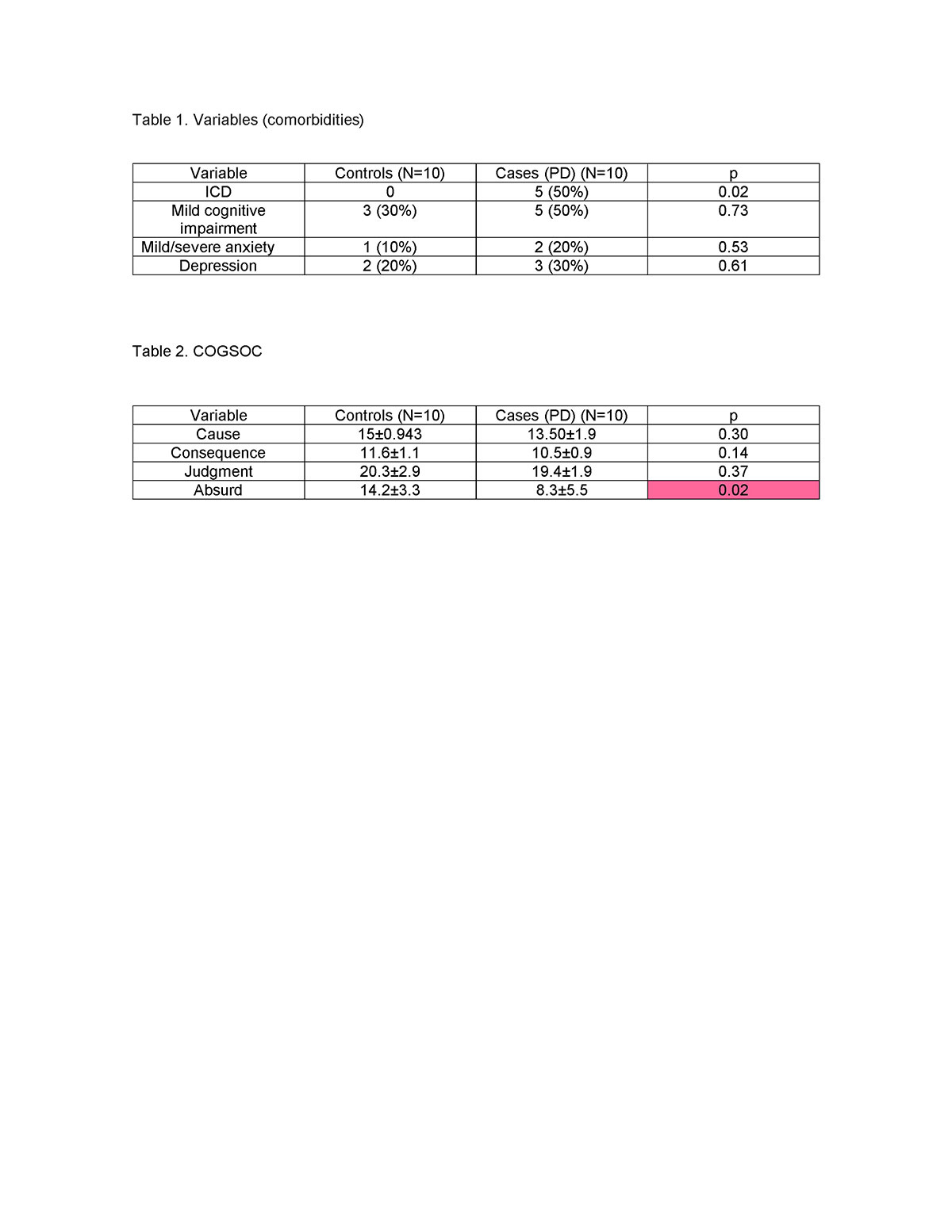Session Information
Date: Wednesday, September 25, 2019
Session Title: Non-Motor Symptoms
Session Time: 1:15pm-2:45pm
Location: Agora 3 West, Level 3
Objective: To explore and compare social cognition between patients with Parkinson’s disease (PD) and healthy participants. Secondarily, to explore whether social cognition is related to the development of impulse control disorder (ICD) in PD.
Background: There are recognized risk factors for ICD in PD, such as high doses of dopamine agonists, early or juvenile onset of illness, masculine gender, impulsive personality, and personal or family history of addictive behavior. Bad decision making in patients with PD, and particularly with concomitant ICD, have been associated with an alteration in the regulation of the reward system; however, whether judgment or social cognition could be affected, due to such hyperdopaminergic state, remains unexplored. Judgment or social cognition refers to the set of thought processes which are activated during social interaction and may be affected in people who make bad decisions.
Method: This is a study of cases and controls, transversal and comparative. Ten patients diagnosed with PD were included, according to the clinical criteria of the Movement Disorder Society, who attended the National Institute of Neurology and Neurosurgery (Mexico City) outpatient clinic. Ten subjects without PD who met previously established selection criteria were invited to participate as a control group. We applied the QUIP-RS, MoCA, Beck Inventory for depression and anxiety, MDSUPDRS (part III) and COGSOC (subscale for social cognition).
Results: 50% of the patients with PD reached criteria for ICD, while no cases were detected in the control group (Table 1). The PD group showed lower scores in the COGSOC compared to the control group. This was especially the case for the Identification of Absurdities subscale (Table 2).
Conclusion: Patients with PD show a tendency for reduced social cognition and this alteration was found more prominently in those patients with ICD. ICD and social cognition impairment should be considered for treatment planning by the clinician.
To cite this abstract in AMA style:
L. Zuazua-Vidal, M. Rodríguez-Violante, R. Solís-Vivanco, A. Pérez-González, A. Alcocer-Salas, A. Cervantes-Arriaga. Association between alteration in social cognition and impulse control disorder in Parkinson’s disease [abstract]. Mov Disord. 2019; 34 (suppl 2). https://www.mdsabstracts.org/abstract/association-between-alteration-in-social-cognition-and-impulse-control-disorder-in-parkinsons-disease/. Accessed January 30, 2026.« Back to 2019 International Congress
MDS Abstracts - https://www.mdsabstracts.org/abstract/association-between-alteration-in-social-cognition-and-impulse-control-disorder-in-parkinsons-disease/

